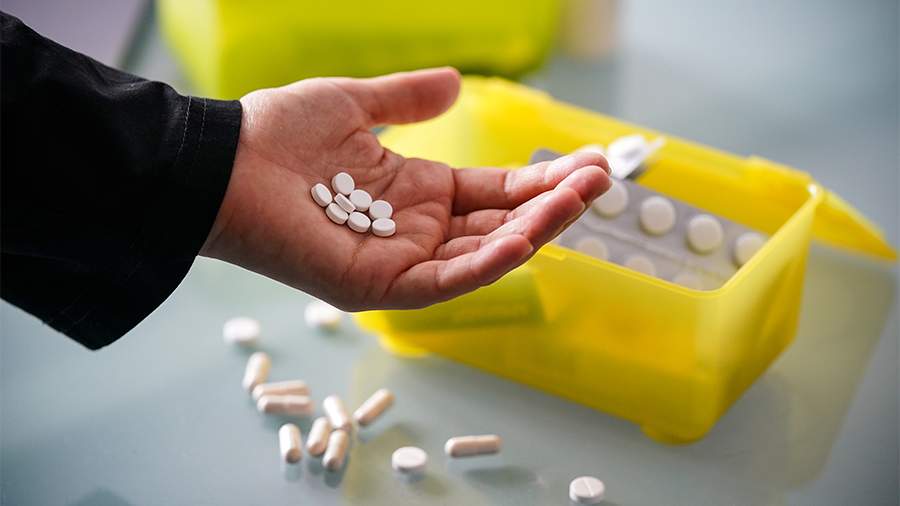The government has expanded the list of vital drugs. What you need to know
The Russian Government has expanded the list of vital and essential drugs (VED). Eighteen new drugs have been added to it, the prices for which will now be regulated. The list of medicines that are given to patients free of charge has also been increased. What the state is doing to provide essential drugs - in the material "Izvestia".
What is the list of vital and essential drugs
The list of vital and essential drugs exists in Russia in one form or another since 1992. It includes medicines for which the state regulates prices. This ensures that the most essential drugs remain available to the population regardless of how the pharmaceutical company is doing or the economic situation.
Currently, the list includes more than 800 drugs. It is based on the international Anatomical-Therapeutic-Chemical Classification (ATC) maintained by the World Health Organization (WHO). The List of VEDs consists of 14 sections, the international nonproprietary name and dosage form are specified for each drug.
The Ministry of Health together with the Federal Antimonopoly Service determines the maximum selling prices for VEDs. The data are entered into the state register, which takes into account all possible dosages of drugs. After a drug is entered into the register, regional authorities determine wholesale and retail markups for each individual subject of the federation. This is how the final price is determined, exceeding which pharmacies are prohibited.
Until 2019, the Russian government annually issued an order that determined the list of VED for the next year. Since 2019, a different order is in effect - a permanent list has been established, to which the government periodically makes changes. This allows the list to be supplemented more frequently and to respond more quickly to changes in the pharmaceutical market. Over the past five years, 11 amendments to the list of VEDs were adopted, that is, on average, the list was expanded every six months.
What is new in the list
January 20, Prime Minister Mikhail Mishustin said that the list of VEDs was supplemented with 18 drugs. The decision on them will come into force on March 15. The new drugs are used in the treatment of oncology (lymphoma, melanoma, leukemia, breast cancer), systemic lupus erythematosus, lung diseases (pneumonia, chronic obstructive pulmonary disease, severe bronchial asthma), anemia in chronic kidney disease, tachycardia, lipid metabolism disorders, peritonitis.
The list of VEDs includes:
The list of VEDs also includes medicines for prevention of thrombotic complications and antiretroviral therapy. For four drugs additional dosage forms are specified, in which they will also be subject to the requirement to regulate prices. These are insulin lispro, daratumumumab, diclofenac and piribedil already included in the list of VEDs.
According to Mishustin, about half of the drugs included in the list are manufactured in Russia. It is planned that by 2030 the share of domestic drugs in the list of VEDs will reach 90% - this will simplify the state control over prices for medicines.
How to get free medicines
The government also separately defines the list of drugs that patients can receive free of charge at the expense of the federal budget. These are medicines for the treatment of complex and rare diseases (the term "high-cost nosologies" is also used). Such diseases include, for example, hemophilia, cystic fibrosis, multiple sclerosis, and various malignant tissue neoplasms. Procurement of drugs for their treatment is carried out by the Ministry of Health.
At the last update of the list one name was added. The list of free medicines includes the antitumor drug isatuximab. It is used in the treatment of multiple myeloma. The cost of 1 ml of 20-mg concentrate reaches Br6 thousand in pharmacies.
In order to obtain medicines necessary for the treatment of complex and rare diseases, you should apply to medical organizations that have the right to issue the appropriate prescriptions. Specialized pharmacy outlets (for example, at city hospitals, polyclinics, dispensaries, whose doctors have the right to write preferential prescriptions) can issue medicines according to such a prescription. If the medicine is not available, the pharmacy is obliged to organize its delivery within 10 days. If after this period the free medicine has not been provided, a complaint should be filed with Roszdravnadzor.
Переведено сервисом «Яндекс Переводчик»


